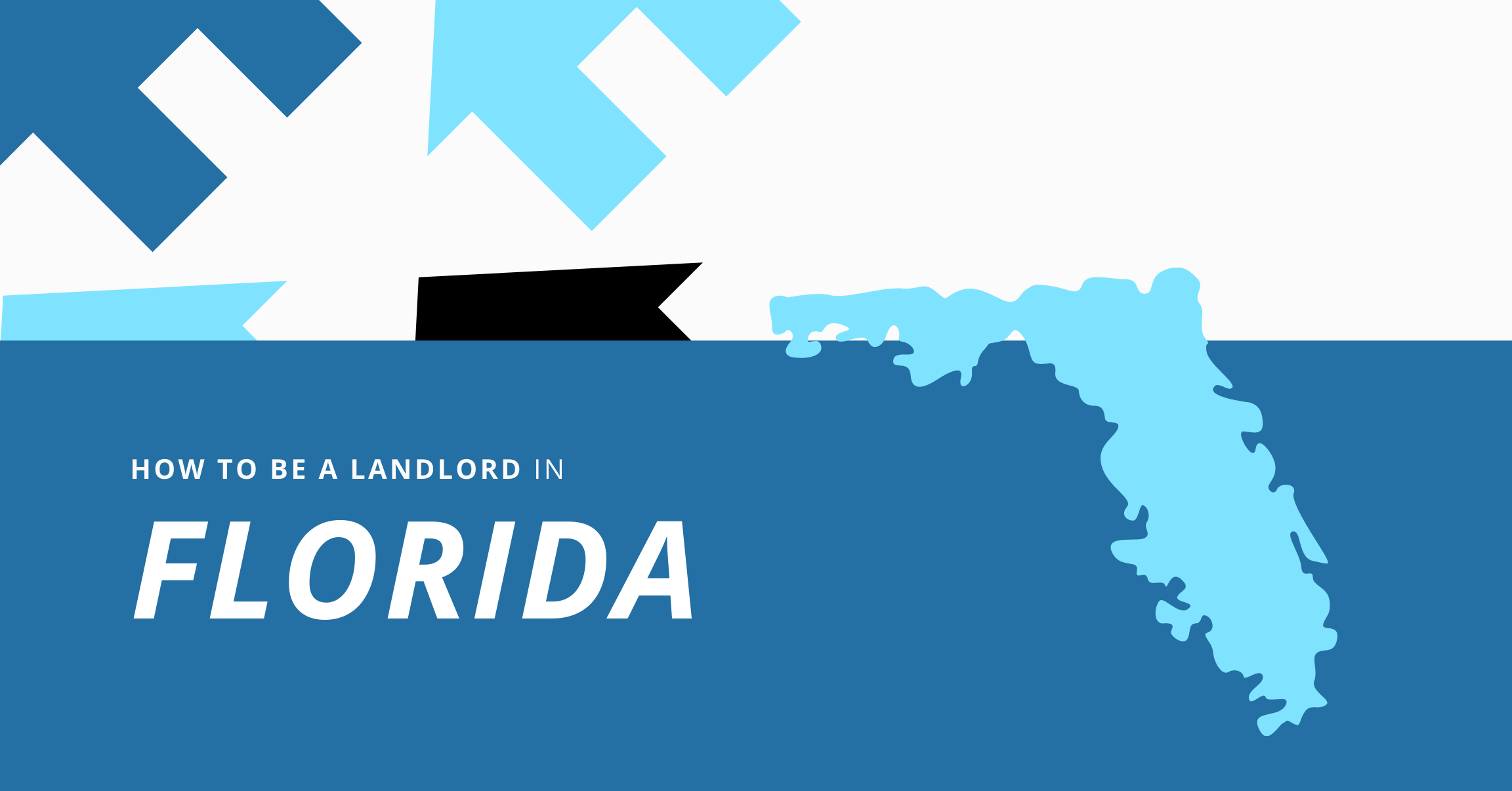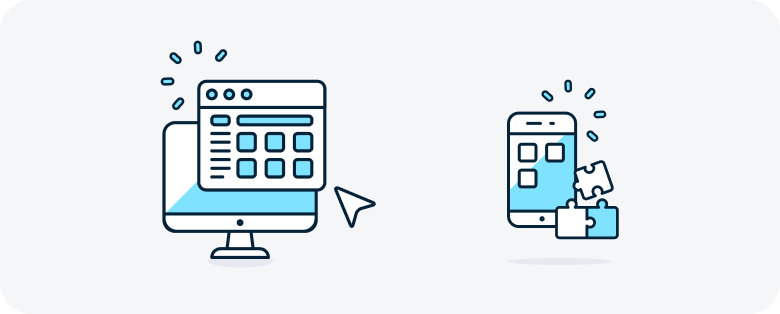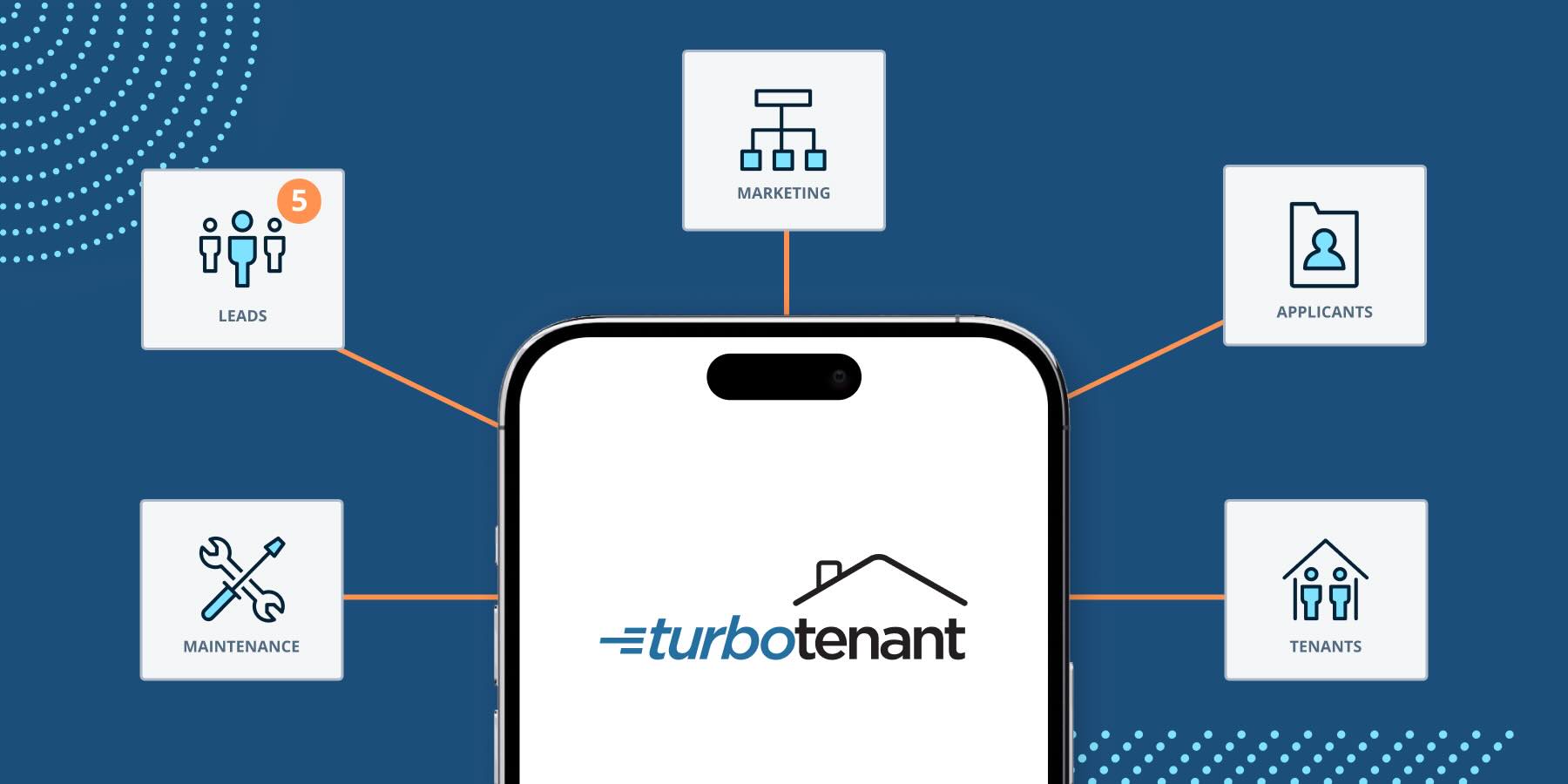Maybe it’s a new idea, or perhaps you’ve been considering it for a long time, but deciding to become a landlord can be equal parts thrilling and terrifying. Whether you’re planning to rent out a single room or multiple units, learning how to be a landlord in Florida doesn’t have to feel overwhelming.
While first-time landlords have plenty to learn, you’ll become a pro in no time with solid planning, an understanding of how renting out property works in Florida, and the right tools at your fingertips.
Marketing. Applications. Leases. Payments.
Research the Market
One of the first steps you’ll need to take when learning how to be a landlord in Florida is to fully understand your market, even if you’ve lived there for years. Remember, familiarity with an area doesn’t automatically make you an expert in the rental market.
Start by taking stock of the big picture (the job market, population growth, and general economic strength of the area) before drilling down into real estate market trends, the inventory of available units, and the affordability of rental properties.
Once you grasp the economics, you can dig deeper, comparing median rent to median income, understanding how future development projects might impact your long-term investment, and noting tenant expectations for rental units. It’s also important to check whether the area requires landlords to obtain a rental license or undergo a property inspection before renting out a unit.
Whether your unit is local or remote, thorough due diligence on the community will significantly simplify the listing and renting process.
Do Some Math
After you’ve compiled a trove of data on your chosen location, it’s time to run the numbers and see if the property makes financial sense for the market and your bottom line. Determining if the property is financially viable includes factoring in the costs to repair and prepare the unit for rent.
Estimate your potential gross rent, then factor in operating expenses like property taxes, insurance, maintenance, HOA dues, and utilities to fully understand your net operating income (NOI). Divide the NOI by the property’s purchase price to find your cap rate, a crucial metric for maximizing your property’s long-term earning potential.
Use your market research on local median household income when calculating rent to ensure renters in the area can afford your target price. An ROI calculator can help you quickly determine if a property is a good financial fit and confirm the cash flow needed to stay profitable.
Read Up On Local Landlord-Tenant Law
The federal government has established numerous laws that impact rental housing, including essential protections for landlords and tenants at every stage of the rental process. Laws like the Fair Housing Act, the Americans with Disabilities Act (ADA), the Fair Credit Reporting Act, and the Servicemembers Civil Relief Act all play key roles in housing regulations.
However, it’s also crucial that landlords fully understand Florida landlord-tenant laws. These laws typically cover details such as security deposit limits and handling procedures, tenant entry requirements, and rent control regulations.
Security deposit rules: Florida doesn’t limit security deposit amounts, but the law requires you to provide a receipt if you own more than five rental units. Additionally, if you hold the deposit in an interest-bearing account, you must pay tenants 75% of the annualized interest or 5% simple interest per year (Fla. Stat. § 83.49).
Entry requirements: As a landlord in Florida, you must give tenants at least 24 hours’ advance notice before entering their unit. You can only enter between 7:30 a.m. and 8:00 p.m. In an emergency, you don’t need to provide notice (Fla. Stat. § 83.53(2)).
Eviction laws: In Florida, evictions follow processes similar to those in other states. Before initiating eviction proceedings, you must deliver a Notice to Pay or Quit or a Notice to Cure or Quit if the tenant is late with rent or violates lease terms. For detailed information, review our guide on Florida evictions.
Rent control: Florida law expressly bans Rent control, except for specific rent increase regulations in Miami-Dade County and West Palm Beach.
Lease breaking: Tenants in Florida can break their leases without penalty under limited circumstances, such as active military duty, becoming victims of domestic violence or abuse, or if the unit becomes uninhabitable, among other situations.
Use Property Management Software
Now that you’re ready to rent your property, why do it all yourself? Leveraging property management software can significantly simplify your daily tasks, streamline operations, and automate tedious manual processes.
Landlord software like TurboTenant centralizes your landlord duties, helps you stay compliant as laws evolve, and saves you time and money throughout your rental business.
Property management software provides a secure location for storing documents, such as leases and notices, improves tenant communication, and increases occupancy rates through various helpful tools. It can also enhance profitability through advanced financial management features, keeping you in control of every dollar and cent.
Use a Legally Compliant Lease
A lease agreement is essential for setting clear expectations and responsibilities for you and your tenant. Without a solid lease, you’re opening yourself up to potential problems down the line—and a random template from an internet search won’t cut it. A legally compliant lease is critical for anyone learning how to be a landlord in Florida.
Property management software like TurboTenant provides access to legally reviewed lease templates you can customize to fit your needs. With an affordable upgrade, you can tailor unlimited leases to manage diverse rental portfolios. You and your tenants can even e-sign leases directly through the platform, eliminating the need for ink and paper to ever enter the equation.
Market Your Property
Every day your unit remains vacant is a day it isn’t earning money, so let’s fix that. Effective property marketing isn’t just about quickly filling vacancies. Instead, focus on creating competitive listings that attract qualified applicants.
With TurboTenant, you can use our AI-powered tool to create attractive listings and instantly broadcast them across dozens of rental sites from a single, syndicated platform. As leads roll in, TurboTenant collects inquiries from all sources and organizes them in one easy-to-sort location (at no extra cost).
Collect Rental Applications Digitally
Once your listing goes live, watch as inquiries start to roll in. Paper applications are outdated; online applications are now a far more efficient, cost-effective, and eco-friendly way to gather essential applicant information.
Rental applications provide insights into an applicant’s employment and rental history and personal details like their name and social security number, allowing you to vet references easily. Digital applications also streamline applicant management, removing the hassle of sorting through piles of paperwork.
Screen Tenants Thoroughly
Rental applications are just the first step; thorough tenant screening ensures you select the most qualified tenants. It’s crucial to remain consistent, screening each tenant uniformly while complying with FHA guidelines against discrimination.
TurboTenant simplifies tenant screening, with applicants covering the cost. The screening process checks criminal records, eviction history, and critical financial details like credit scores, lines of credit, credit inquiries, and outstanding debts. For an additional fee, TurboTenant will even verify a tenant’s income, comparing actual data to application claims.
Lock Down Maintenance Requests
Florida requires you to maintain your rental in habitable condition, known legally as an implied “warrant of habitability.” Failure to uphold this can allow tenants to break leases without penalty, making prompt attention to maintenance requests essential.
TurboTenant allows tenants to submit maintenance requests conveniently through their laptop or mobile app, eliminating disruptive late-night calls or cluttered text messages. Maintenance issues automatically link to tenants and rental units for easy tracking. With Maintenance Plus, vetted professionals handle the repairs thoroughly and promptly.
Collect Rent Online
With TurboTenant, you’ll never have to manually deposit another rent check. Collecting rent online simplifies tracking payments for each unit and integrates automatically with your rental accounting tools.
Tenants can set up autopay, which reduces late payments, all while the platform sends automatic rent reminders and applies late fees immediately after grace periods expire. Easily monitor who has paid and who hasn’t, and gently nudge tenants to make timely payments.
Streamline Rental Property Accounting
Accurately tracking income and cash flow is critical for long-term rental success. While choosing a well-known general accounting solution like QuickBooks or Excel might be tempting, software designed specifically for property management offers clearer advantages.
TurboTenant provides landlords with specialized accounting tools to automatically track income, maintenance expenses, and vendor payments, as well as generate customizable revenue and balance sheet reports without complex setup procedures. The platform helps you monitor every lease closely, ensuring you’re always prepared for upcoming vacancies.
TurboTenant Makes DIY Landlording Easy
If you’ve wondered how to be a landlord in Florida and weren’t sure where to begin, we hope you feel confident. Let’s quickly recap what we covered:
- Research your market and understand local laws and renter preferences.
- Do the math to determine an appropriate rental price that aligns with what local renters can afford.
- Thoroughly understand Florida landlord-tenant laws while complying with federal regulations.
- Use property management software, like TurboTenant, to streamline landlord tasks.
With solid intel, powerful tools, and effort made easier by TurboTenant, you’ll never wonder how to be a landlord in Florida again. Sign up today.





